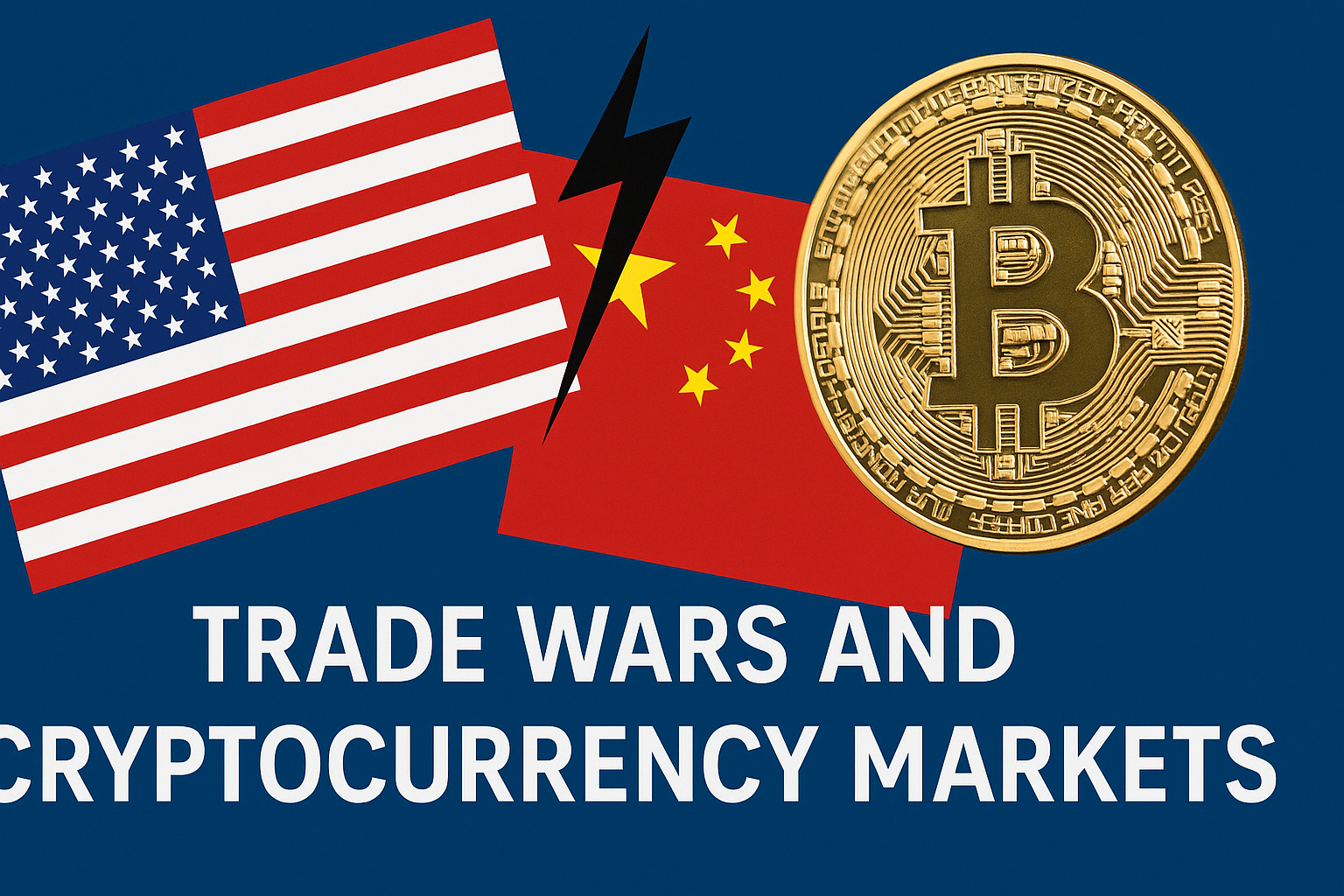
In today’s global economy, trade wars between major nations have become more than just political conflicts—they are economic battles that can ripple across all sectors, including digital finance. One of the most affected areas in recent years has been the cryptocurrency market. While cryptocurrencies like Bitcoin and Ethereum are decentralized and not tied to any government, they are still influenced by global economic events, including trade wars.
Here is how trade wars can influence the cryptocurrency markets:
1. Increased Demand for Decentralized Assets
During trade wars, traditional financial markets often experience volatility. Investors seeking to protect their wealth may look for alternative assets that are not controlled by governments or central banks. Cryptocurrencies become an attractive option in such times, as they offer decentralization, limited supply, and borderless transactions. This shift in investor sentiment can lead to a surge in demand and rising prices for leading cryptocurrencies.
2. Weakening of National Currencies
Trade conflicts often lead to currency devaluation. When a country imposes or responds to tariffs, its local currency may weaken due to reduced exports or capital flight. As confidence in fiat currencies drops, individuals and institutions may turn to digital currencies as a hedge against inflation and currency instability. In some cases, cryptocurrencies are used as a safe haven much like gold.
3. Disrupted Financial Infrastructure
Trade wars can disrupt international payment systems and banking relationships, especially in countries facing sanctions or trade restrictions. In response, businesses and individuals may adopt cryptocurrencies to bypass traditional financial systems. This is particularly relevant in emerging economies or regions with limited access to global banking services. Blockchain-based transactions offer a faster, cheaper, and censorship-resistant alternative.
4. Regulatory Uncertainty
While trade wars often spark demand for digital assets, they can also lead to increased regulation. Governments may tighten control over capital flows or crypto trading to prevent money from escaping their financial systems. For example, during economic tensions, countries might enforce stricter know-your-customer (KYC) and anti-money laundering (AML) laws for crypto exchanges. These actions can create uncertainty in the market and impact investor behavior.
5. Investor Speculation and Volatility
Cryptocurrency markets are already known for their high volatility, and trade wars can amplify this effect. When trade tensions rise, speculation around government reactions, currency shifts, and global financial health increases. This speculative environment often leads to short-term price swings in digital assets, making the market more unpredictable for both traders and long-term investors.
6. Rise of Stablecoins and Digital Alternatives
In uncertain trade environments, stablecoins—cryptocurrencies pegged to fiat currencies like the US dollar—often gain popularity. They offer the benefits of digital assets while minimizing volatility. In addition, trade wars may accelerate interest in central bank digital currencies (CBDCs), as governments explore digital alternatives to boost control over cross-border payments and economic stability.
Conclusion
Trade wars may seem like distant political conflicts, but their effects ripple through global markets, including the world of cryptocurrency. While they introduce risks, they also highlight the value of decentralized finance in times of economic uncertainty. For investors and traders, understanding the connection between global trade tensions and crypto market behavior is essential for making informed decisions in a rapidly changing financial landscape.
As nations continue to navigate economic rivalries, the role of cryptocurrency as a tool for financial independence, wealth protection, and global transactions is expected to grow.
Leave a Reply